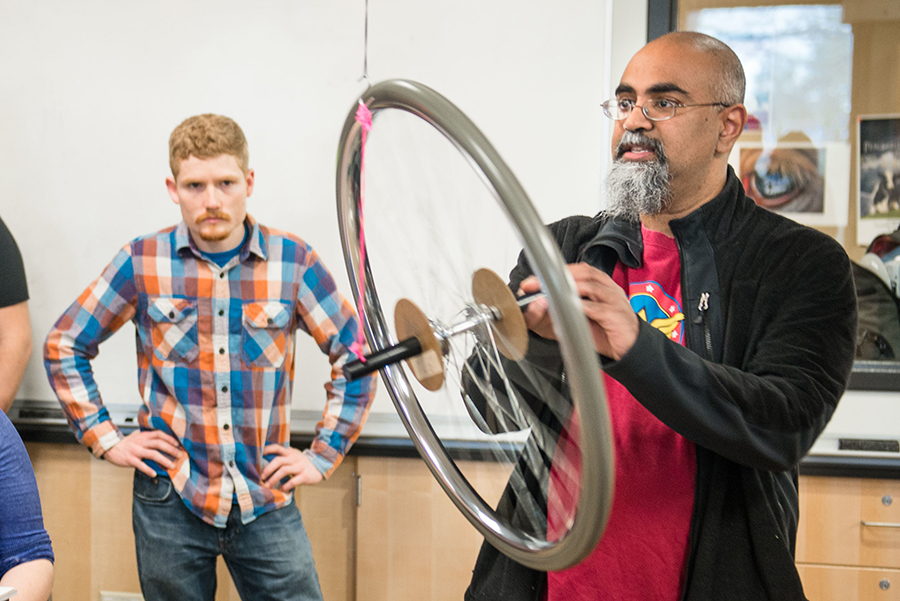About Physics
Collaborate in an inclusive and hands-on approach to physics. Work in small groups in labs and workshops to combine theoretical studies with practical applications. Investigate phenomena from the scale of the most fundamental particles to the largest structure of the universe. Explore models describing interactions of matter and energy. Consider the implications to nature and society of how we apply that knowledge.
Programs integrate introductory physics with many other disciplines, with recent offerings including visual art, chemistry, botany, sustainability studies, entrepreneurship, and philosophy.
If you're embarking on an academic pathway in the sciences, you can obtain a foundation that combines laboratory-based physics and calculus with chemistry or computer science.
At the advanced level, in programs that include applied mathematics and advanced physical chemistry, you can learn:
- Classical mechanics
- Electrodynamics
- Quantum mechanics
- Statistical mechanics
- Advanced lab methods
Specialized advanced independent and small group study is available with recent work including nuclear physics, applied electronics, and quantum optics.
Students who completed integrated studies including physics have gone on to graduate studies, medical school, and law school, and have had successful careers as teachers and scientists working in industry, government, and universities.
Check out related Courses and Programs in the Academic Catalog
